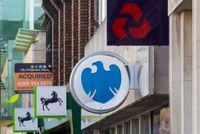On August 29, 2025, the UK’s largest banks found themselves at the center of a political and financial storm, as share prices plummeted in response to renewed calls for a windfall tax on banking profits. The proposal, spearheaded by the Institute for Public Policy Research (IPPR), a left-leaning think tank, sent shockwaves through London’s financial district and ignited a fierce debate about fairness, fiscal responsibility, and the future of the City as a global financial powerhouse.
By the end of a turbulent Friday, shares in NatWest and Lloyds had each fallen by more than 4%, while Barclays dropped over 2%. The Guardian reported that the sell-off wiped almost £8 billion from the sector’s market value in just one day, with NatWest tumbling 5%, Lloyds falling 4.5%, Barclays down 3.6%, and HSBC slipping more than 1%. Investors, already jittery over the prospect of tighter regulation and global economic uncertainty, reacted swiftly to the IPPR’s suggestion that a new tax could soon become a reality—and perhaps a recurring cost.
So why the uproar? At the heart of the matter is the Bank of England’s quantitative easing (QE) program, which was launched after the financial crisis and expanded in 2020 to support the economy during the pandemic. Under QE, the Bank bought government bonds by creating new electronic money and depositing it in commercial banks’ accounts. The idea was to lower long-term interest rates and stimulate lending. But as the Bank began to unwind QE in 2022, it faced heavy losses—selling bonds below their purchase price and, more importantly, paying higher interest on bank reserves than it earned from the bonds themselves.
The IPPR estimates that these QE-related losses now cost taxpayers around £22 billion a year. Meanwhile, commercial bank profits have soared by $22 billion compared to pre-pandemic levels. Carsten Jung, associate director for economic policy at IPPR and a former Bank of England economist, minced no words in his criticism: “Public money is flowing straight into commercial banks’ coffers because of a flawed policy design,” he told BBC. “While families struggle with rising costs, the government is effectively writing multi-billion-pound cheques to bank shareholders.” He added that the annual taxpayer loss is roughly equivalent to “the entire budget of the Home Office every year.”
To address what it calls a “government subsidy to commercial banks,” the IPPR has proposed a new ‘QE reserves income levy’—a targeted tax on banks’ income from interest paid on reserves created by QE. The think tank claims this could raise up to £8 billion a year, potentially saving taxpayers more than £100 billion over the current parliament and providing the government with much-needed fiscal headroom to support households facing a cost-of-living squeeze.
“This is not how QE was meant to work – and no other major economy does it this way,” Jung argued, drawing a historical parallel: “A targeted levy, inspired by Margaret Thatcher’s own approach in the 1980s, would recoup some of these windfalls and put the money to far better use – helping people and the economy, not just bank balance sheets.”
The proposal has landed on Chancellor Rachel Reeves’ desk at a particularly fraught moment. Since Labour’s return to power, Reeves has been under pressure to deliver on spending promises while sticking to strict fiscal rules. Recent decisions to reverse welfare savings and winter fuel allowance cuts have narrowed her budgetary options, making the prospect of new revenue sources all the more tempting. In July, Reeves announced her “Leeds Reforms” to encourage investment and ease post-crisis rules that banks argue are too restrictive. Yet, as Financial Times and The Economic Times noted, the IPPR’s plan could clash with Labour’s pro-growth narrative and add to uncertainty over the sector’s future.
Bank executives and industry groups have not held back in their response. Charlie Nunn, chief executive of Lloyds, warned that tax rises would directly conflict with efforts to boost the UK economy and foster a strong financial services sector. “It wouldn’t be consistent with tax rises,” Nunn stated, echoing a sentiment widely shared in the City. Barclays CEO C.S. Venkatakrishnan cautioned that such a levy would undermine Labour’s growth agenda by curtailing lending capacity and investor confidence.
Industry body UK Finance also weighed in, highlighting the existing tax burden on banks. “Banks based here already pay both a corporation tax surcharge and a bank levy,” a spokesperson said. The corporation tax surcharge, introduced in 2021, adds 8% to banks’ profits on top of the standard corporate tax rate. The bank levy, in place since 2011, is based on the scale of banks’ business activities. “Adding another would make the UK less internationally competitive and run counter to the government’s aim of supporting the financial services sector to help drive growth and investment in the wider economy,” UK Finance warned.
Government officials have so far been tight-lipped about the proposal. The Treasury declined to comment on tax speculation, instead emphasizing efforts to “cut red tape” and make the UK “the number one destination for financial services firms by 2035.” A Treasury spokesperson told BBC, “We are a pro-business government, and the chancellor has been clear that the financial services sector is at the heart of our plans to grow the economy.”
Still, the high-stakes debate shows no sign of abating. Proponents of the windfall tax argue it would deliver fairness by redirecting bank windfalls to ease fiscal pressures and support struggling households. Critics, on the other hand, warn of unintended consequences: deterring investment, weakening London’s global standing, and ultimately hampering the very economic growth the government seeks to promote.
As the autumn Budget approaches, all eyes are on Chancellor Reeves. Any move to tax QE-linked income will need to balance the promise of fiscal gains against the risk of undermining lending, dividends, and the UK’s status as a financial center. Markets are watching closely for Budget signals and whether officials might consider technical alternatives—such as ‘tiered’ reserves, a step the Bank of England has previously resisted.
The coming months will test the government’s ability to navigate between the competing demands of fiscal prudence, economic growth, and social fairness. For now, the City holds its breath, uncertain whether the era of bumper profits and buybacks is drawing to a close—or just facing another twist in its ongoing saga.



